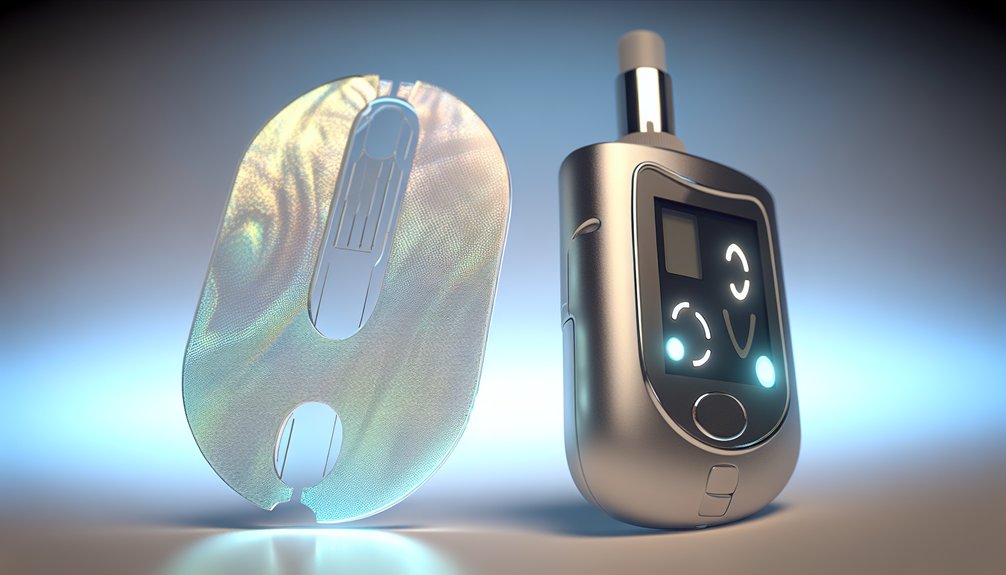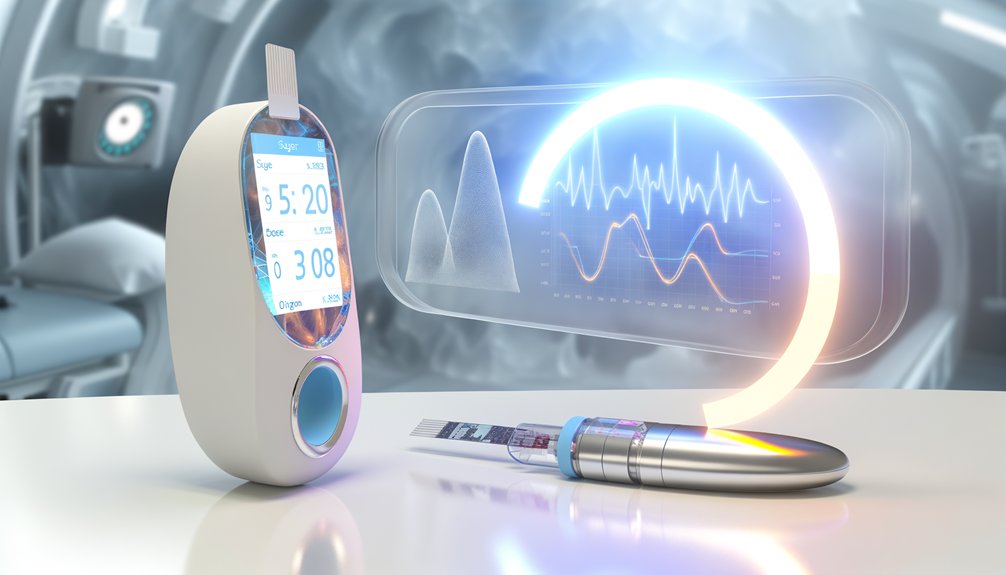Exciting advances in diabetes technology by 2025 promise a revolution in care. Continuous glucose monitoring will now track both glucose and ketones, enabling early detection of complications. Automated insulin delivery systems are becoming smarter, easing worries for patients. New medications, like once-weekly insulins and innovative therapies, provide fresh hope. With each innovation, people living with diabetes can feel more empowered and secure in their health journey. There’s so much more to discover about these life-changing breakthroughs.

In a world where technology and health are increasingly intertwined, diabetes management is experiencing a remarkable transformation. Innovations in continuous glucose and ketone monitoring are paving the way for a future where early detection of complications like diabetic ketoacidosis (DKA) becomes a reality. Abbott’s new system, set to launch in 2025, will not only track glucose levels but also ketones. This advancement could be a game changer for those at risk, offering peace of mind and a chance for timely action.
As the American Diabetes Association broadens its recommendations for continuous glucose monitoring (CGM), even non-insulin users and pregnant women can access these life-saving tools. Imagine a mother with gestational diabetes, able to monitor her levels seamlessly, ensuring the health of her baby. This is the future that awaits, where monitoring becomes a routine part of life, enhancing glycemic control and reducing fear. Furthermore, AI tools can detect early signs of type 1 diabetes up to a year before symptoms appear, enabling proactive measures for at-risk individuals. The bihormonal artificial pancreas represents a significant advancement, delivering both insulin and glucagon automatically to improve blood sugar control.
The future of diabetes care empowers all, ensuring seamless monitoring and enhanced health for mothers and their babies.
Automated insulin delivery systems are also making strides. The Control-IQ+ algorithm from Tandem is now accessible for younger children and adults with type 2 diabetes, showing promising results in clinical trials. Picture a child playing without constant worry over their blood sugar levels, thanks to a smart system that adjusts insulin automatically. These advancements are not just technological—they’re life-altering. Additionally, the integration of continuous ketone monitoring is expected to further enhance safety in diabetes management.
Artificial intelligence is stepping into the spotlight, offering predictive analytics to foresee complications before they arise. With tools like GlyTwin providing personalized recommendations, managing diabetes feels less like a burden and more like a partnership with technology. Imagine having a coach that guides you through your daily challenges, making each day a little easier.
Moreover, the horizon of diabetes treatment is expanding with new medications and therapies. Once-weekly insulin formulations and groundbreaking triple agonist medications promise to simplify treatment regimens. The hope for a functional cure through stem cell therapies is now closer than ever, igniting excitement and optimism.
As these advances unfold, the future of diabetes care looks brighter than ever.
